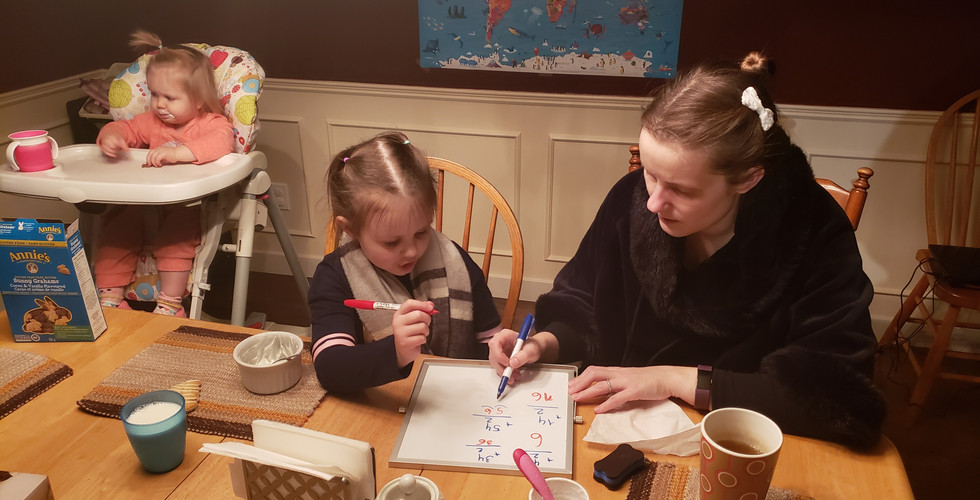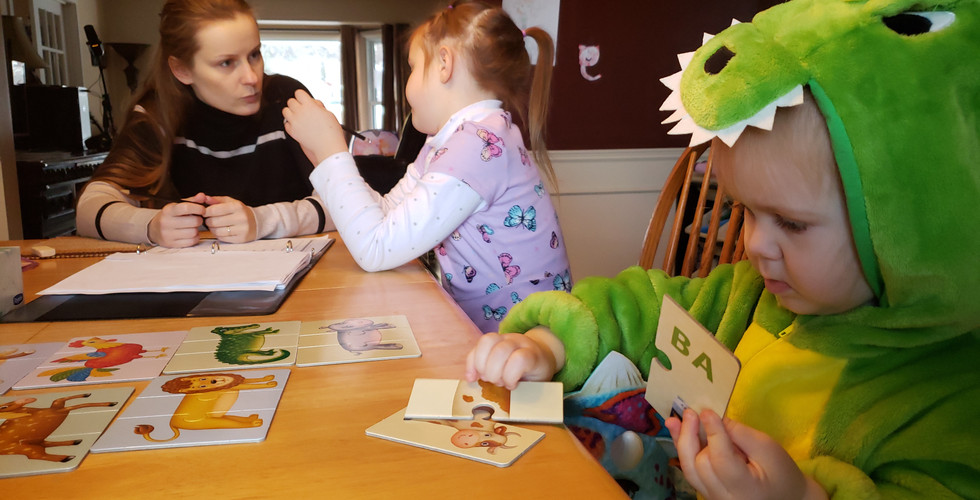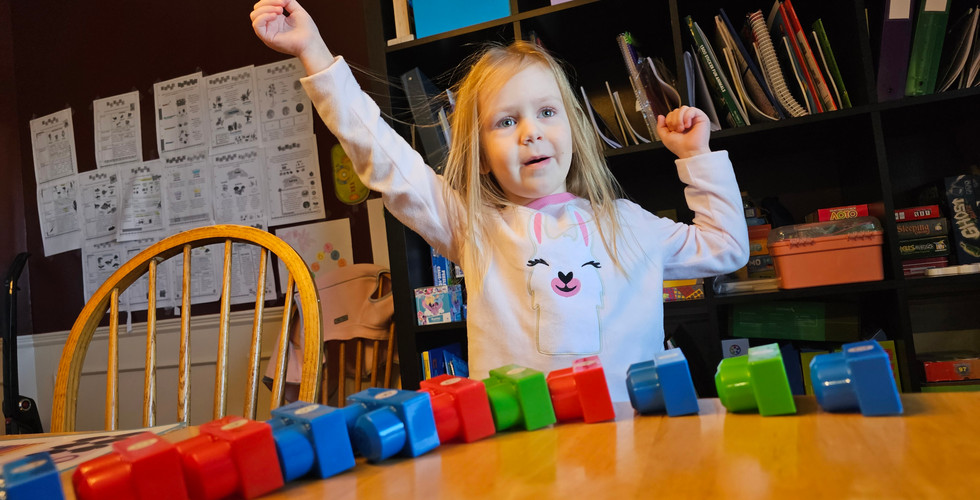
When my oldest daughter, Iris, was around 4 years old we started doing some home learning activities with her which gradually turned into the home learning journey we are still on. To clarify - my children are NOT homeschooled. They attend a local public school AND learn at home in addition to their formal education. Please note that in no way do I imply that public school education is not good enough on its own. We have been very lucky with our school and have only had fantastic experiences with the teachers so far. However, the situation of our family has required some outside of the box thinking when it comes to our children's education, for a few reasons:

I am a huge advocate for preventative learning (“preventative” in a medical sense). As an adult I have had the experience of needing to seek remedial help from a tutor because my skills and knowledge were not strong enough in a certain area from my childhood school program alone. I remember feeling like I wasn't "smart enough" because I couldn't learn everything just based on my formal school education. I want to help my children avoid this feeling and stay on top of things, meaning they feel confident and achieve mastery of skills as they are introduced at school. This approach requires a lot of time and resources, so it is not like we save money on tutoring in the future, but that is not the point. The main goal is for the children to feel capable and motivated to learn.
My teaching credentials. As a trained teacher in my pre-Canada life, I found it very hard to stay away from my children’s educational journey. Also as someone who has worked inside a classroom, I know how challenging it is to teach and attend to every child in a big class. I also understand how important it is for parents to be part of the learning process.
Bilingualism. My daughters speak English and Russian, but English is dominant because it is the language of everyday life in Canada. In order to develop and maintain their Russian language skills, I teach (taught for my oldest daughter) them how to read and write in Russian and also teach them other subjects in Russian. For example, we do math, study basic history, geography, and biology in Russian because I want them to be comfortable with terminology in the different areas of knowledge.
Covid-19. My oldest daughter was in JK when the first lockdown started, just before her 5th birthday, which contributed a lot to the extent of my involvement in my children's education. Through the 1.5 years of online learning that followed, we tried various approaches and online learning platforms to supplement and support virtual learning through the school. We are still using some of those programs now, almost 5 years later!

All of these factors have helped bring us to where we are today. At the moment, my family does the majority of our learning in the mornings in Russian. Our morning classes usually include a rotation of math, Russian language, early history, geography, and biology. In the afternoons my oldest daughter also progresses through online curriculums in English: Reading Eggs (literacy) and Beast Academy (math). Both morning and afternoon learning sessions are fairly short and usually last between 15-30 minutes in the mornings and around 10-15 minutes in the afternoons. However I believe that these short classes made a significant difference in my daughters’ learning over the years (almost 5 with Iris!). Consistency IS really the KEY, both for locking in their learning and developing habits for life long learning.
Thank you for reading our story and I would be happy to hear yours!










































